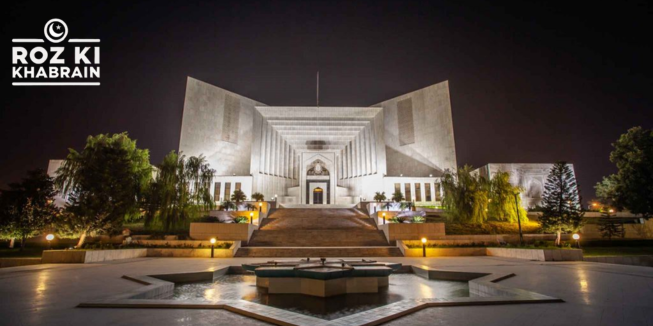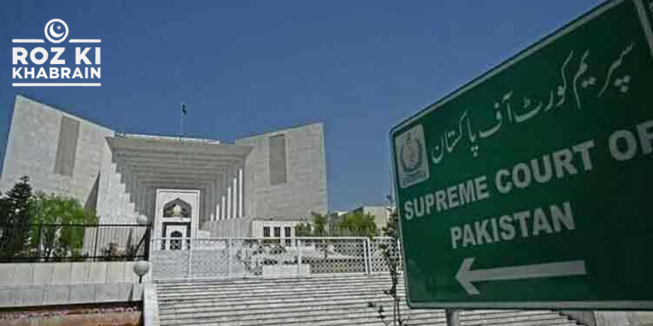The Supreme Court of Pakistan has overturned its previous ruling on Article 63-A, marking a pivotal change in the legal interpretation of this clause.
The ruling was delivered by a five-member larger bench led by Chief Justice Qazi Faez Isa in response to multiple review petitions challenging an earlier Supreme Court decision made in 2022.
On Thursday, the court stated that the votes of defecting lawmakers should be counted, effectively nullifying its earlier judgment. A detailed ruling on the matter will be provided later, but the bench announced a unanimous short order.
Previously, in 2022, a five-member bench under then Chief Justice Umar Ata Bandial had ruled in a narrow 3-2 decision that votes from defecting lawmakers were invalid, following a presidential reference filed by then-President Arif Alvi.
This recent Supreme Court ruling comes amid efforts by the current government to implement judicial reforms and constitutional amendments that necessitate a two-thirds majority in Parliament—a majority the ruling coalition currently lacks.
PTI Withdraws from Article 63-A Case Proceedings
The Pakistan Tehreek-e-Insaf (PTI) has chosen to withdraw from the ongoing proceedings in the Supreme Court regarding the Article 63-A review appeals.
This decision was made as a five-member larger bench, led by Chief Justice Qazi Faez Isa, resumed hearing the review case. PTI lawyer Ali Zafar informed the court that the party wished to step aside, noting that former PTI chairman Imran Khan intended to appear personally.
Zafar also expressed concerns about potential constitutional amendments that could affect the ongoing proceedings. However, the chief justice discouraged political commentary during the legal proceedings and expressed disappointment over PTI’s withdrawal, stating, “It is unfortunate, as we wanted to hear your arguments.”
Despite PTI’s withdrawal, the court appointed Ali Zafar as a judicial assistant to assist in future hearings. Zafar raised concerns about amendments that could extend the tenure of the Chief Justice of Pakistan, prompting a stern response from the bench. The chief justice cautioned Zafar about his wording, warning that such remarks could be construed as contempt of court.
Discussions during the hearing also revolved around constitutional amendments and their implications for the judiciary. Justice Jamal Khan Mandokhail questioned what would happen if the chief justice himself declined any tenure extension.
CJP Cannot Compel Judges to Sit on a Bench
During the hearing, the Supreme Court dismissed objections raised by the PTI legal team, affirming that the chief justice cannot compel any judge to sit on a bench and deeming the objections legally unjustified.
Addressing the late filing of the review petition, the court clarified that the petition was submitted 21 days before the detailed decision was issued, rejecting PTI’s concerns.
PTI’s lawyer, Ali Zafar, also questioned the bench’s formation, objecting to the inclusion of certain judges. The Supreme Court maintained that bench formation adheres to legal protocols, noting that Justice Mansoor Ali Shah had voluntarily excused himself, leading to Justice Naeem Akhtar Afghan’s inclusion.
The court also addressed PTI’s claim that the review petition was heard out of turn, confirming that it was correctly scheduled and that the opposition to its timing lacked support from the Additional Attorney General and Farooq H. Naek, with Ali Zafar being the only objector.
Furthermore, the court clarified the role of the President in filing references, stating that as a symbol of national unity, the President is not required to notify every citizen when filing a reference, thereby outlining the legal process.
Regarding bench formation, the Supreme Court reiterated that while the chief justice oversees this process, he is not legally obligated to explain his decisions. In this instance, the chief justice voluntarily issued a clarifying statement, despite no legal requirement to do so.




